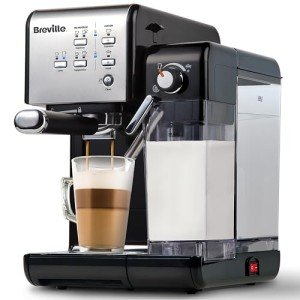Why You Should Focus On Improving Commercial Espresso Machines
The Rise of Home Espresso Machines: A Comprehensive Guide
As coffee fans continue to seek fresh and delicious brews in your home, the popularity of home espresso machines has risen in the last few years. No longer just the domain of coffee shops and cafe, these machines empower individuals to craft barista-quality espresso drinks from the convenience of their kitchens. This short article will explore the various kinds of home espresso machines, their functions, and considerations for picking the right one. Furthermore, it will provide a selection of FAQs to help potential buyers make informed decisions.
Kinds Of Home Espresso Machines
Home espresso machines can be categorized into several categories based upon their systems and user-friendliness. Each type has its special features, pros, and cons.
Type
Description
Pros
Cons
Manual Espresso Machines
Needs the user to by hand control the developing process, including techniques like pulling a lever to create pressure.
- Complete control over brewing process
- Compact style
- Requires skill and practice
- Time-consuming
Semi-Automatic Machines
Machine automates water circulation and pressure, but the user still controls the dosing and duration of the brewing process.
- Balance of automation and control
- Versatile
- Learning curve for perfecting methods
Fully Automatic Machines
Automates the entire brewing procedure, from grinding to brewing, frequently with programmable settings for customized drinks.
- Extremely easy to use
- Quick and practical
- Less control over the brewing process
- Higher price point
Pill or Pod Machines
Uses pre-packaged espresso capsules or pods to produce coffee rapidly and easily.
- Extremely easy to use
- Minimal clean-up
- Limited taste range
- More expensive per cup than ground coffee
Super-Automatic Machines
Integrates functions of totally automatic machines with built-in mills, permitting users to brew entire bean espresso and milk-based drinks with one touch.
- All-in-one convenience
- Ideal for milk-based drinks
- Often the most expensive
- Can be bulky
Features to Consider
When picking a home espresso machine, potential buyers should think about the following features to guarantee they select a machine that meets their requirements:
Grinder Type:
- Built-in grinders can provide fresher premises but may need more maintenance.
- Different grinders permit more personalization of grind size.
Pressure:
- Look for machines that produce at least nine bars of pressure, which is ideal for brewing espresso.
Water Temperature Control:
- Machines with adjustable temperature level settings enable better extraction of taste from beans.
Milk Frothing Options:
- Consider whether you want a manual steam wand for frothing or an automatic milk frother for benefit.
Ease of Cleaning:
- Machines with removable parts and self-cleaning functions significantly lower cleanup time.
Size and Design:
- Ensure the machine fits comfortably in your kitchen and lines up with your visual preferences.
Budget:
- Set a budget before starting your search, as rates can range considerably from affordable models to high-end machines.
Benefits of Home Espresso Machines
Owning a home espresso machine uses various advantages:
- Cost-Effective: Over time, brewing espresso at home can save coffee lovers money compared to frequent coffee shop visits.
- Modification: Users can try out various beans, grind sizes, and developing strategies to find their best cup.
- Convenience: The ability to brew espresso at any time removes the need to go out to a coffee shop, particularly beneficial during late nights or mornings.
- Quality Control: With a home machine, individuals have complete control over the quality of components and developing processes.
Drawbacks of Home Espresso Machines
Nevertheless, there are some drawbacks to consider:
- Initial Investment: High-quality espresso machines can be pricey, requiring a substantial upfront investment.
- Knowing Curve: Mastering the art of espresso developing can take some time and practice, which might be daunting for beginners.
- Upkeep: Like any appliance, espresso machines require regular cleansing and maintenance to ensure optimum performance.
FAQs
1. What is the best kind of home espresso machine for beginners?
Response: For novices, a semi-automatic machine is frequently suggested as it uses a balance in between control and automation, permitting you to discover the basics without frustrating complexity.
2. How Pump Espresso Machines should I spend on a home espresso machine?
Response: Entry-level machines can begin around ₤ 100 to ₤ 300, while higher-end models can range from ₤ 500 to over ₤ 2000. It's necessary to set a budget based on your anticipated use and desired functions.
3. Do I need a separate grinder?
Answer: While some espresso machines come with built-in mills, buying a different grinder enables greater modification and guarantees much better quality grounds.
4. How typically should I clean my espresso machine?
Response: Cleaning frequency can vary by machine type, but it's usually advised to clean up the machine after each use and carry out deep cleanings weekly or regular monthly, depending upon use.
5. Can I make milk-based drinks with any espresso machine?
Response: Not all machines come with milk frothing abilities. If you enjoy beverages like lattes or cappuccinos, look for a machine with a steam wand or automatic frother.
Home espresso machines are transforming the method coffee aficionados enjoy their cherished brews. With various types and advanced features available in the market, there is something for everyone. Whether it's the joy of developing special dishes or merely enjoying the best shot of espresso, buying a home espresso machine can enhance both the coffee-drinking experience and the quality of life for coffee fans everywhere. Similar to any investment, it is crucial to weigh the benefits against the potential drawbacks and select a machine that flawlessly fits both your way of life and choices.
